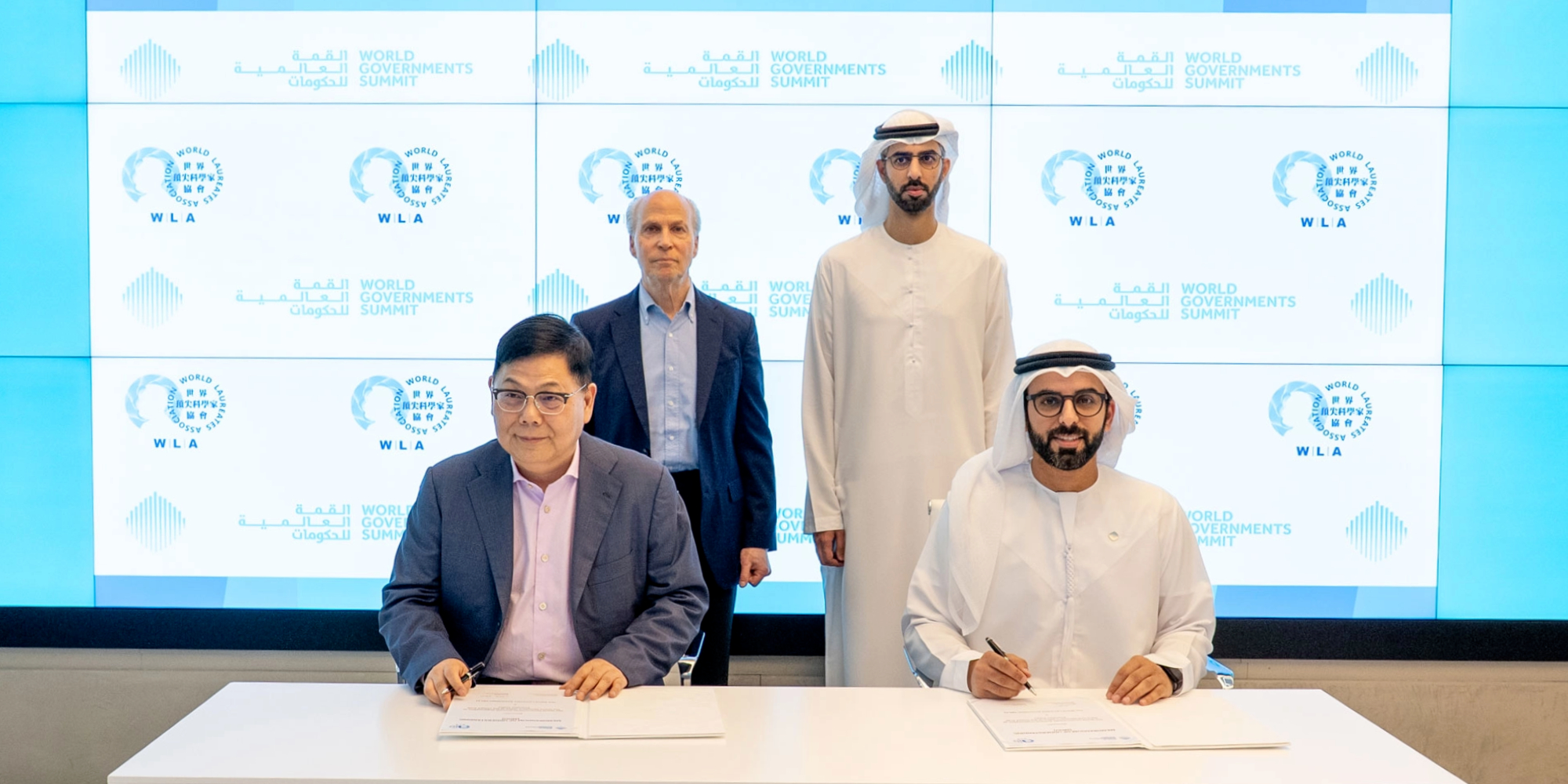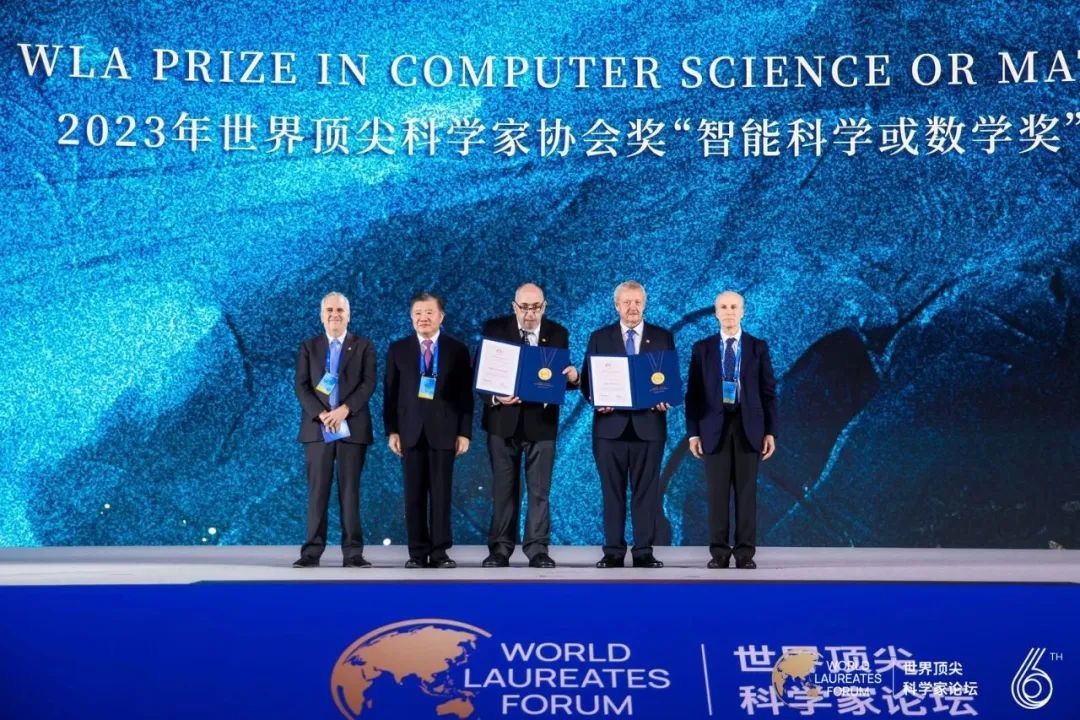The 6th World Laureates Forum opened in Shanghai on Monday, with hundreds of scientists from 25 countries and regions, including 27 Nobel laureates, gathering for in-depth discussions on topics such as the life sciences, artificial intelligence and efforts to mitigate climate change.
Co-organized by the World Laureates Association, one of the largest nongovernmental and nonprofit organizations for laureates globally, and the China Association for Science and Technology, this year's forum has the theme "science leads transformation".
In his opening speech, Wan Gang, the chairman of the China Association for Science and Technology, said: "After five years of development, the WLA Forum has become an important platform linking top scientists and promoting international dialogue on cutting-edge technology."
Initiated in 2018, the WLA Forum was written into Shanghai's 14th Five-Year Plan in 2020 to promote China's opening-up in science and technology. Wan said the city has been actively building an international innovation and technology center, continuously optimizing its scientific innovation ecosystem, and achieving significant progress in generating new scientific discoveries.
"We hope that the global scientific community will continue to focus on the future, cooperate and collaborate, jointly promote basic science, advocate international cooperation in supporting the growth of youth, and advance high-level innovation in science and technology, as well as high-quality development in the economy and society, making greater contributions to the construction of a shared future for humanity," he said.
Roger Kornberg, chairman of the WLA and 2006 Nobel Laureate in Chemistry, said the WLA had become a multifaceted international organization that now included over 180 winners of all the major prizes in the world, including 70 Nobel laureates in all fields.
"It is a jewel in the crown of Shanghai and a beacon of hope in these difficult times," he said, announcing that the WLA is planning to inaugurate its own laboratories to enable 1,000 young scientists to launch independent research.
At the forum's opening ceremony, five winners of the 2023 World Laureates Association Prize in Computer Science or Mathematics and Life Science or Medicine received their medals and award certificates.
The WLA Prize is an international science prize established in Shanghai in 2021. The prize is awarded in two categories each year, with the total award for each prize being 10 million yuan ($1.38 million). It aims to recognize and support eminent researchers around the world.
Arkadi Nemirovski, professor at the H. Milton Stewart School of Industrial and Systems Engineering at Georgia Institute of Technology in the United States, and Yurii Nesterov, professor at the Center for Operations Research & Econometrics and the Mathematical Engineering Department at the Universite Catholique de Louvain in Belgium, were awarded the 2023 WLA Prize in Computer Science or Mathematics "for their seminal work in convex optimization theory".
Michael I. Jordan, chairman of the selection committee for that prize, said: "Optimization theory is arguably the area of mathematics that has had the most significant impact outside of mathematics over the past three decades."
He said that optimization theory had found major applications in fields such as control systems, economics, signal processing, machine learning, resource allocation, energy management, supply chain management and finance. In many of those fields it had provided both conceptual foundations and the basis for the design of practical algorithms and real-world applications.
"We hope that the prize not only fosters this multidisciplinary integration but also inspires budding talents to delve into the emerging intellectual challenges of applied mathematics," Jordan said.
The WLA Prize in Life Science or Medicine went to Karolin Luger, professor at the University of Colorado Boulder in the US, Daniela Rhodes from the MRC Laboratory of Molecular Biology in Cambridge, England, and Timothy J. Richmond, professor at ETH Zurich in Switzerland.
Selection committee chairman Randy Schekman said the winners had "left an indelible mark on the history of our understanding of chromosome structure … for elucidating the structure of the nucleosome at the atomic level, providing the basis for understanding chromatin, gene regulation, and epigenetics".
German Nobel laureate Thomas Sudhof, a professor at Stanford University in the US who won the Nobel Prize in physiology or medicine in 2013, is attending the WLA Forum for the first time.
He said the best future for China in science would be to enable more open communication, adding that many of his former co-workers were now professors in China, and some were "doing fantastic work, having really excellent opportunities and are able to be innovative and creative" with support.
Swiss molecular biologist Susan M. Gasser said science was international and she would like to be engaged in more cooperation with Chinese scientists.
She said she had noticed that many young students had been invited to the forum, and it was encouraging to see the young generation from different countries being "very forthcoming and engaged" in science.
Story Source: China Daily
https://www.chinadaily.com.cn/a/202311/06/WS6548c5d0a31090682a5ecb47.html





